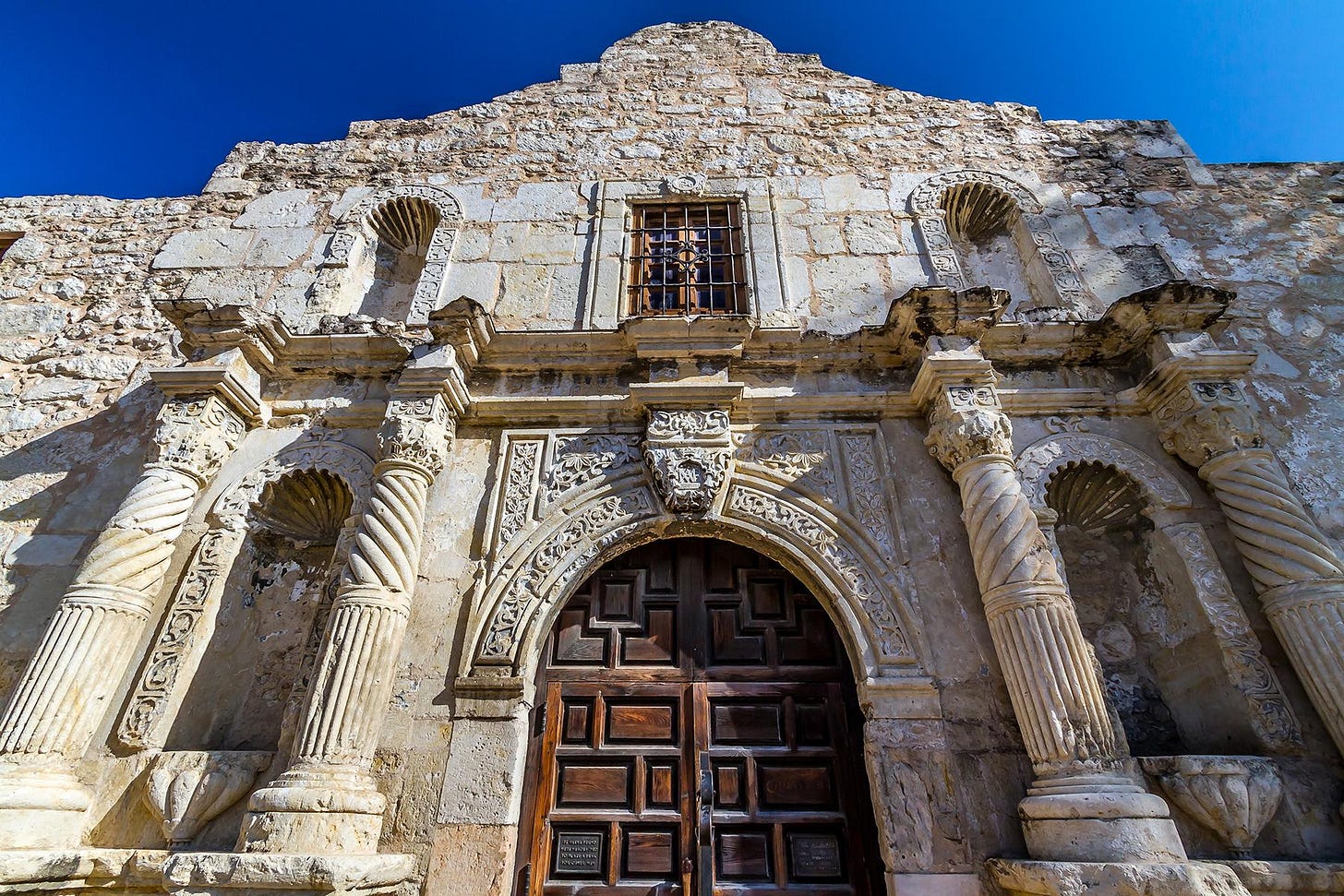Remember the Alamo!

The Alamo Mission was founded along the San Antonio river in the early 1700s by Catholic missionaries. At the end of the century the mission would be secularized and then abandoned. Following which, Spanish soldiers occupied the mission church as a fort during Mexico’s fight for independence from Spain, which it gained in 1821.
Mexico, with its newly established constitutional republic, encouraged colonists to populate the northern area known as Texas. But then in 1833, a newly elected Mexican president, Antonio López de Santa Anna, plunged the country into a civil war. The Texas colonists opposed this new ruler, wishing for a return to the Mexican Constitution of 1824.
Santa Anna sent an army northward into Texas which prompted members of the fledgling Texas Army to enter the Alamo and prepare for battle. On Feb 23, 1836 the Siege of the Alamo began. Within two weeks, all of the Alamo’s defenders would be dead.
Skirmishes continued throughout March and April around the San Antonio area, including the massacre of 400 prisoners from the Texas Army in the town of Goliad – carried out under orders from Santa Anna.
In late April the fortified Texas Army attacked Santa Anna’s troops with cries of “Remember the Alamo! Remember Goliad! God and Texas!” The battle lasted just eighteen minutes. The following day, Apr 22, 1836, Santa Anna was captured and the Republic of Texas was born.
Politics and revisionist history aside, the phrase “Remember the Alamo!” has since become a powerful battlecry for subjugated groups seeking retribution for past atrocities. Your sins of the past will not be forgotten!
“Remember the Alamo!” also serves as an ideal counterpoint to the phrase “Forget this course” from Lesson 189 in A Course in Miracles.
Empty your mind of everything it thinks is either true or false, or good or bad, of every thought it judges worthy, and all the ideas of which it is ashamed. Hold onto nothing. Do not bring with you one thought the past has taught, nor one belief you ever learned before from anything. Forget this world, forget this course, and come with wholly empty hands unto your God. (W-pI.189.7)
Remember the Alamo! Forget this course.
Avenge the past. Let go of the past.
One of the challenges practicing a philosophy such as ACIM is the paradox of form. Here we are as bodies, families, tribes, nations, and world histories attempting to conceptualize what no history and no past mean.
Are we being instructed to ignore past trauma and barbaric acts?
Most definitely not.
In fact, our grievances serve as one of the most powerful tools for transcending form and resolving the paradox. But only if looked upon with a different history teacher. One who provides a completely different understanding of world civilization and current events. One whose map has no longitude nor latitude lines; in fact, no coordinates whatsoever.
Yet one whose teaching leads to the most extraordinary peace for all.
Join me in Thursday’s class where we’ll explore how remembering the past can be transformed into an instrumental practice for freedom. I look forward to seeing you then.



